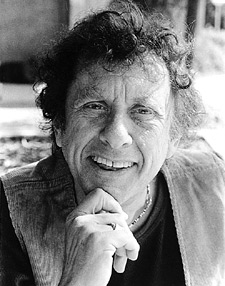Sunday, August 19, 2018, 1:00 P.M. To 5:00 P.M.
 The Democracy Now web site reminds us that in September of 2004 Howard Zinn’s A People’s History of the United States (Harper & Row, 1980/2003/2009), published 24 years earlier, sold the millionth copy of the book. Wikipedia now reports over two million copies have been sold. Professor Zinn wrote that his goal of writing the book was to create a “quiet revolution” not in the sense of seizing power, but more in the sense of workers taking power to control the conditions of their lives.
The Democracy Now web site reminds us that in September of 2004 Howard Zinn’s A People’s History of the United States (Harper & Row, 1980/2003/2009), published 24 years earlier, sold the millionth copy of the book. Wikipedia now reports over two million copies have been sold. Professor Zinn wrote that his goal of writing the book was to create a “quiet revolution” not in the sense of seizing power, but more in the sense of workers taking power to control the conditions of their lives.
Labor Day Poems sees Jim Moreno return to the Ink Spot to celebrate voices of workers rights for those who have worked in factory or field and have written about it. The Emily Fund For A Better World’s web site (www.doonething.org) writes that Labor Day is a US Federal Holiday celebrating America’s labor force. It is a time to honor the contribution American workers have made to the health and well-being of the nation, and a reminder about the importance of ensuring the economic, health and social well-being of individual workers. It is a time to reflect on the basic right of workers to earn a livable wage and to work in safe conditions.
One has to ask if the poets and their poems that Moreno uses as prompts for writing original poetry were influenced by such abolitionist leaders as Frederick Douglas, William Lloyd Garrison, Fannie Lou Hamer, or Bob Moses. Perhaps the poets were influenced by the labor organizers who have led strikes for the rights of working people like Big Bill Haywood, Mother Jones, or Cesar Chavez? Are Eugene V. Debs, Helen Keller, the Rev. Daniel Berrigan or Cindy Sheehan influences? How about Mark Twain who lampooned imperialism?
The first 2 hour segment of this workshop allows participants to resonate with change that counters the greedy profits over people values which squelch human values starting with Gary Soto & Joseph Millar who wrote: We must have the ambition for our poems that they reach toward the sublime, that they speak from our own true selves and are grounded in the experience of our daily lives, including our dreams and hopes.
The second two hours moves poets into the consciousness of such poets as Dorianne Laux
and Julia Stein where the tribe of fairness, equity, and freedom beats a rhythmic drum. Moreno beats a similar drum when he reminds: This four hour workshop is not a critique workshop. This is a write from your heart workshop conducted in a climate of respect in a Container of acceptance and respect for all genders and all cultures.